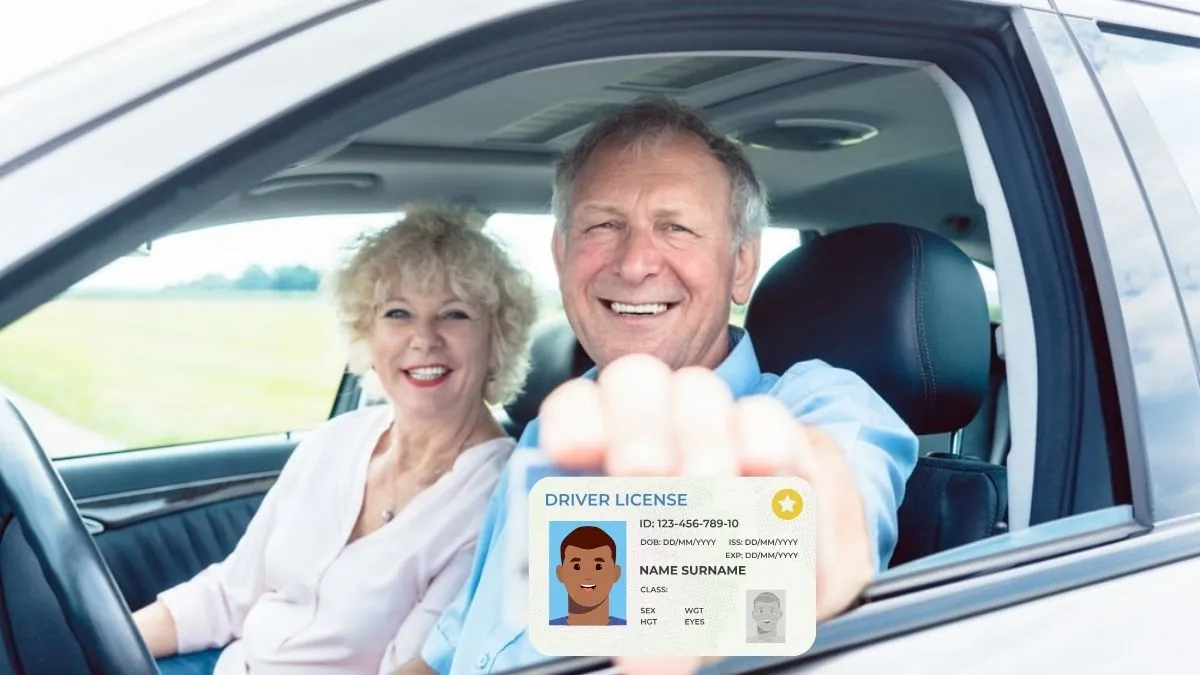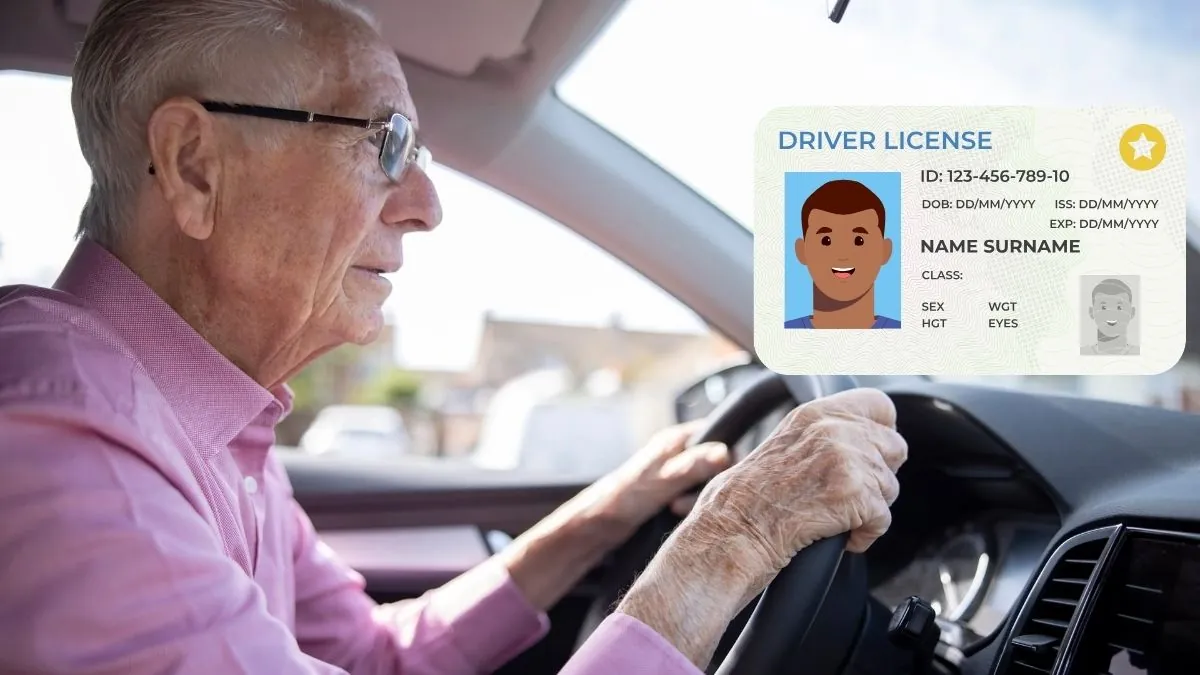As the population ages, more seniors are finding themselves needing to renew their driver’s licenses. This process can be complicated, especially for older adults who may be unfamiliar with the latest requirements or changes in the law. In Tennessee, the state has implemented specific regulations and processes to ensure that senior drivers can maintain their independence while also ensuring road safety. This comprehensive guide covers everything seniors need to know about renewing their licenses in Tennessee in 2024, from the necessary documentation to special considerations and services available in different cities across the state.
As the number of seniors in Tennessee continues to grow, so does the importance of ensuring that they can safely continue to drive. Driving provides independence, freedom, and the ability to stay connected with the community. However, as people age, their driving abilities may change, necessitating more frequent assessments to ensure that they remain safe on the road. Tennessee, like many states, has specific requirements for senior drivers to renew their licenses, balancing safety concerns with the need to maintain independence.
This guide aims to provide a comprehensive overview of the 2024 license renewal process for seniors in Tennessee. Whether you’re a senior yourself or assisting a loved one, this article will walk you through everything you need to know, from eligibility and documentation to tips for safe driving and available resources.
Eligibility and Requirements
Age-Related Eligibility Criteria
In Tennessee, seniors are subject to certain age-related criteria when it comes to renewing their driver’s licenses. While the standard renewal process applies to most drivers, those aged 65 and older may face additional requirements aimed at ensuring they are fit to drive.
For seniors, license renewal typically becomes more frequent as they age. For instance, while younger drivers may renew their licenses every eight years, those aged 65 and over are required to renew every five years. This more frequent renewal process allows the state to monitor and assess the driving capabilities of seniors more closely.
Required Documentation
Seniors in Tennessee must provide specific documentation when renewing their licenses. These include:
- A valid, unexpired driver’s license or state-issued ID
- Proof of residency (e.g., utility bills, lease agreements)
- Proof of U.S. citizenship or lawful permanent residency
- Social Security number
- Vision screening results (if applicable)
It’s important to ensure that all documentation is up-to-date and accurate to avoid delays in the renewal process.
Renewal Frequency for Seniors
As mentioned, seniors aged 65 and older must renew their licenses every five years. For those over 70, the renewal interval may be even shorter depending on individual circumstances, such as health conditions that could impact driving abilities.
Vision and Medical Examinations
Vision plays a crucial role in safe driving, and Tennessee requires all drivers to meet certain vision standards. Seniors may be required to undergo a vision screening as part of the renewal process. If the screening indicates that corrective lenses are needed, this will be noted on the license.
In some cases, seniors may also be required to submit a medical report from their doctor, especially if they have a condition that could impair their driving ability. This report will be reviewed by the Department of Safety and Homeland Security to determine whether any restrictions or special conditions should be applied to the license.
Fees Associated with Renewal
The fee for renewing a driver’s license in Tennessee varies depending on the length of validity. For seniors, the fee is typically lower than for younger drivers. For example, a five-year renewal might cost around $20. However, additional fees may apply for late renewals or if additional services, such as a vision test, are required.
Renewal Process
Online Renewal
Tennessee offers an online renewal option for drivers who meet certain criteria. This option is convenient for seniors who may have mobility issues or prefer to avoid in-person visits to the DMV. However, online renewal is only available to those who:
- Have a valid, unexpired license
- Do not require a vision or medical exam
- Have no changes to their personal information
To renew online, seniors can visit the Tennessee Department of Safety and Homeland Security’s website, where they will need to provide their driver’s license number, date of birth, and other identifying information. After paying the renewal fee, the new license will be mailed to them within a few weeks.
In-Person Renewal
For seniors who prefer or need to renew their licenses in person, they can visit any Driver Services Center in Tennessee. In-person renewal may be necessary for those who need a vision or medical exam, or for those whose licenses have expired.
During the visit, seniors will need to:
- Provide the required documentation
- Pass a vision screening (if applicable)
- Pay the renewal fee
In-person renewal allows seniors to address any questions or concerns directly with DMV staff, ensuring that their renewal process goes smoothly.
Mail-In Renewal Options
For seniors who cannot renew online and prefer not to visit a Driver Services Center, Tennessee also offers a mail-in renewal option. This is particularly useful for those who live in rural areas or have limited access to transportation.
To renew by mail, seniors must request a renewal packet from the Department of Safety and Homeland Security, complete the necessary forms, and return them with the required documentation and payment. The renewed license will be mailed to them once the process is complete.
Special Considerations for Senior Drivers
Vision Requirements
As mentioned earlier, vision is a key factor in determining a senior’s ability to drive safely. Tennessee requires seniors to meet specific vision standards, which may involve wearing corrective lenses or using other assistive devices. If a senior fails the vision screening, they may be required to visit an eye doctor for a more comprehensive exam and to submit a report to the DMV.
Medical Condition Reporting
Seniors with certain medical conditions, such as epilepsy, diabetes, or heart disease, must report these conditions when renewing their licenses. The Department of Safety and Homeland Security may require additional medical documentation to assess whether these conditions impact the senior’s ability to drive. Depending on the severity of the condition, the DMV may place restrictions on the license, such as prohibiting night driving or requiring the use of adaptive equipment.
Restrictions and Endorsements
Tennessee may place specific restrictions on a senior’s driver’s license based on their physical or cognitive abilities. These restrictions are designed to enhance safety while allowing seniors to continue driving. Common restrictions include:
- Daytime driving only
- Use of corrective lenses
- No highway driving
Endorsements, on the other hand, may be added to a license to allow seniors to operate specific types of vehicles, such as motorcycles or commercial vehicles. Seniors must pass additional tests to obtain these endorsements.
Alternative Identification Options
For seniors who no longer wish to drive but still need an official form of identification, Tennessee offers state-issued ID cards. These cards are valid for eight years and can be used for various purposes, such as voting, accessing government services, and more. Seniors can apply for an ID card at any Driver Services Center.
City-Specific Information
Tennessee is a diverse state with varying needs and services available to seniors in different cities. Below is a breakdown of what seniors can expect in some of Tennessee’s major cities.
Nashville
Nashville, the state’s capital, offers numerous resources for seniors renewing their licenses. The city’s Driver Services Centers are well-equipped to handle senior renewals, with locations spread throughout the city, including the busy Charlotte Avenue location. Nashville also has several senior centers, such as the FiftyForward network, which provides transportation assistance and other services that can help seniors navigate the renewal process.
Memphis
Memphis, Tennessee’s largest city, has unique considerations for seniors. The city’s sprawling layout can make transportation challenging, but Memphis offers a robust public transportation system, including the Memphis Area Transit Authority (MATA), which provides discounted fares for seniors. The city’s main Driver Services Center on Summer Avenue is accessible and offers services tailored to senior needs.
Knoxville
Knoxville’s hilly terrain and diverse neighborhoods can pose unique challenges for seniors. The city provides several Driver Services Centers, including locations on Middlebrook Pike and at the DMV in the downtown area. Seniors in Knoxville can also take advantage of services from the Knoxville-Knox County CAC (Community Action Committee), which offers assistance with transportation and mobility. Local organizations often host events and workshops focusing on senior driving safety and renewal processes.
Chattanooga
In Chattanooga, seniors benefit from a mix of urban and rural resources. The city’s Driver Services Center, located on Brainerd Road, provides a range of services for seniors, including vision screenings and assistance with the renewal process. Chattanooga’s senior population is served by organizations like the Chattanooga-Hamilton County Health Department, which offers health screenings and educational programs about safe driving. Additionally, the city’s public transportation system, CARTA, offers senior discounts and accessible services.
Other Significant Cities
- Clarksville: Known for its proximity to Fort Campbell, Clarksville’s Driver Services Center on Wilma Rudolph Boulevard is equipped to handle senior renewals. The city offers services through the Clarksville-Montgomery County Senior Center, which provides transportation assistance and educational resources for seniors.
- Murfreesboro: As a growing city with a significant senior population, Murfreesboro offers resources through its Driver Services Center on Memorial Boulevard. The city’s senior services include the Murfreesboro Senior Center, which provides workshops on driving safety and assistance with renewal processes.
- Franklin: Located near Nashville, Franklin has a Driver Services Center that provides personalized services for seniors. The city also benefits from the Williamson County Office of Aging, which offers programs and support for senior drivers, including transportation options and renewal assistance.
Statistics and Trends
Senior Driving Population in Tennessee
According to the Tennessee Department of Safety and Homeland Security, approximately 18% of licensed drivers in Tennessee are aged 65 and older. This demographic is growing as the state’s population ages, highlighting the importance of effective renewal processes and safety measures for senior drivers.
Accident Statistics Involving Senior Drivers
Recent statistics indicate that senior drivers are involved in a significant number of traffic accidents. While the overall accident rate for seniors is lower than for younger drivers, the severity of accidents involving seniors can be higher due to age-related factors such as decreased reaction times and vision impairments. According to the Tennessee Highway Patrol, seniors aged 65 and older are involved in about 14% of all traffic accidents in the state.
Impact of Aging on Driving Abilities
Aging can affect driving abilities in various ways, including slower reaction times, decreased vision, and cognitive decline. The American Automobile Association (AAA) reports that these changes can impact a senior’s driving skills, making regular assessments and renewals crucial to maintaining road safety. In Tennessee, the renewal process includes vision screenings and medical evaluations to address these concerns.
Public Opinion on Senior Driving Regulations
Public opinion on senior driving regulations varies, with many advocating for more stringent assessments to ensure safety, while others emphasize the importance of maintaining independence for as long as possible. Surveys conducted by the Tennessee Department of Safety and Homeland Security show that while there is broad support for periodic evaluations, there is also a recognition of the need for accommodations and assistance to help seniors continue driving safely.
Tips for Safe Driving as a Senior
Regular Health Check-Ups
Seniors should schedule regular health check-ups to monitor any conditions that may affect their driving abilities. This includes vision exams, hearing tests, and evaluations for conditions like arthritis or diabetes. Keeping health issues under control can help maintain driving safety.
Vehicle Modifications and Assistive Devices
Modifications to a vehicle can help seniors drive more safely. Consider installing features like adjustable seats, larger mirrors, or additional lighting. Assistive devices, such as steering wheel grips or hand controls, can also be beneficial.
Defensive Driving Courses
Many seniors find defensive driving courses useful for refreshing their driving skills and learning new techniques. These courses often offer discounts on insurance premiums and can provide valuable tips for navigating road conditions safely.
Alternatives to Driving
When driving becomes less feasible, seniors should explore alternative transportation options. Public transit, ride-sharing services, and community shuttles can provide convenient ways to maintain independence without the risks associated with driving.
Available Resources for Seniors
Senior Centers and Assistance Programs
Senior centers across Tennessee offer a range of services to assist with driving and transportation. These centers provide resources such as transportation assistance, educational workshops, and support for navigating the renewal process. Notable examples include the FiftyForward network in Nashville, the Chattanooga-Hamilton County Health Department, and the Murfreesboro Senior Center.
State and Local Government Services
The Tennessee Department of Safety and Homeland Security provides comprehensive services for seniors, including assistance with license renewal and information on requirements. Local DMV offices across the state are equipped to handle senior-specific needs, from vision screenings to medical documentation.
Non-Profit Organizations and Advocacy Groups
Non-profit organizations like AARP and the National Institute on Aging offer resources and support for senior drivers. These organizations provide educational materials, advocacy for senior driver rights, and programs aimed at improving driving safety.
Transportation Alternatives
For seniors who can no longer drive or prefer not to, alternative transportation options are available. Public transit systems, ride-sharing services like Uber and Lyft, and community-based transportation programs offer accessible and affordable ways to get around. Many of these services provide discounts or specialized programs for seniors.
Conclusion
Renewing a driver’s license can be a complex process for seniors, but understanding the requirements and available resources can make it easier. Tennessee’s approach to senior driver renewal balances safety with the need for independence, offering various options to meet individual needs.
By staying informed about the renewal process, maintaining regular health check-ups, and exploring alternative transportation options, seniors can continue to enjoy the freedom of driving while ensuring their safety and that of others on the road.
As Tennessee’s population continues to age, ongoing support and resources will be crucial in helping seniors navigate the challenges of driving. For seniors and their families, staying proactive about license renewal and driving safety will contribute to a better quality of life and enhanced independence.
This Article Includes






